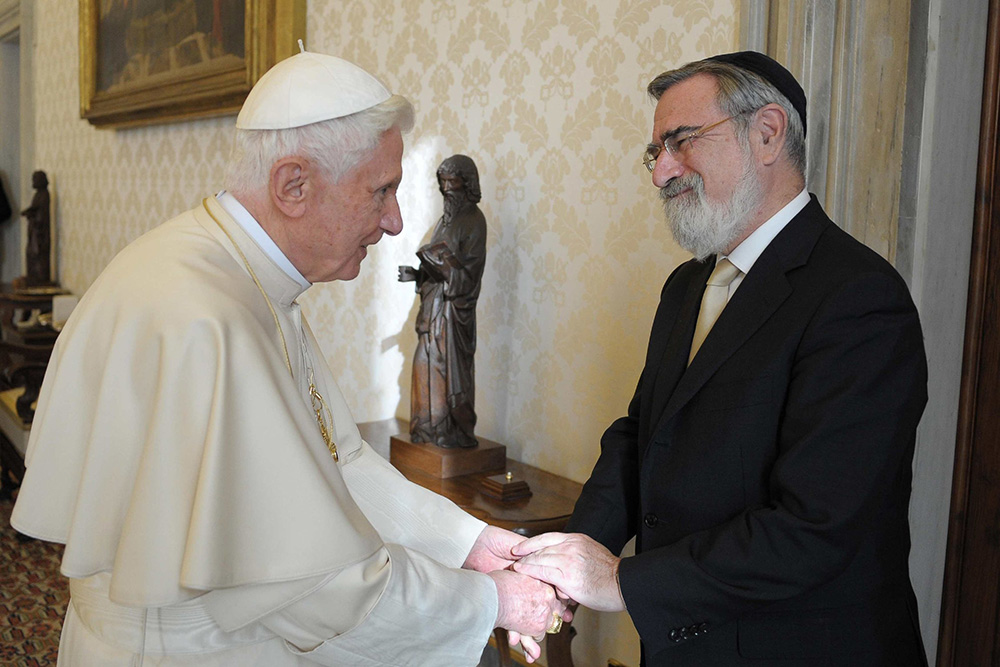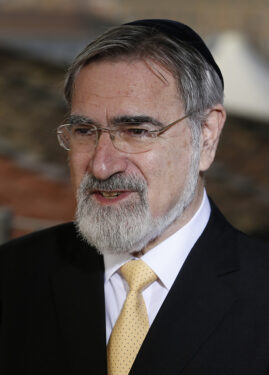
MIDTOWN — Gila Sacks is not certain what her father, world-renowned theologian Rabbi Jonathan Sacks, would say about the state of the world today, as war rages in the Holy Land. However, she does know three things the influential late rabbi would say to not do.
Do not accept that this is the way the world is. Do not despair. Do not forget “why we are here,” she said.
“When we cry out, when we hope, when we fight injustice, we are doing so not just for ourselves. Judaism, my father taught, is not for Jews alone,” Gila Sacks said.
This message of hope and healing was shared on Tuesday, Oct. 31, during the 2023 Sacks Conversation, the third iteration of an annual event, created after his death in 2020, to celebrate the impact of Rabbi Sacks’ global moral voice. It was held in a packed Carnegie Hall.
The event is organized by The Rabbi Sacks Legacy, an organization that is “continuing the work that he began,” Gila Sacks said — not just to keep his memory alive.
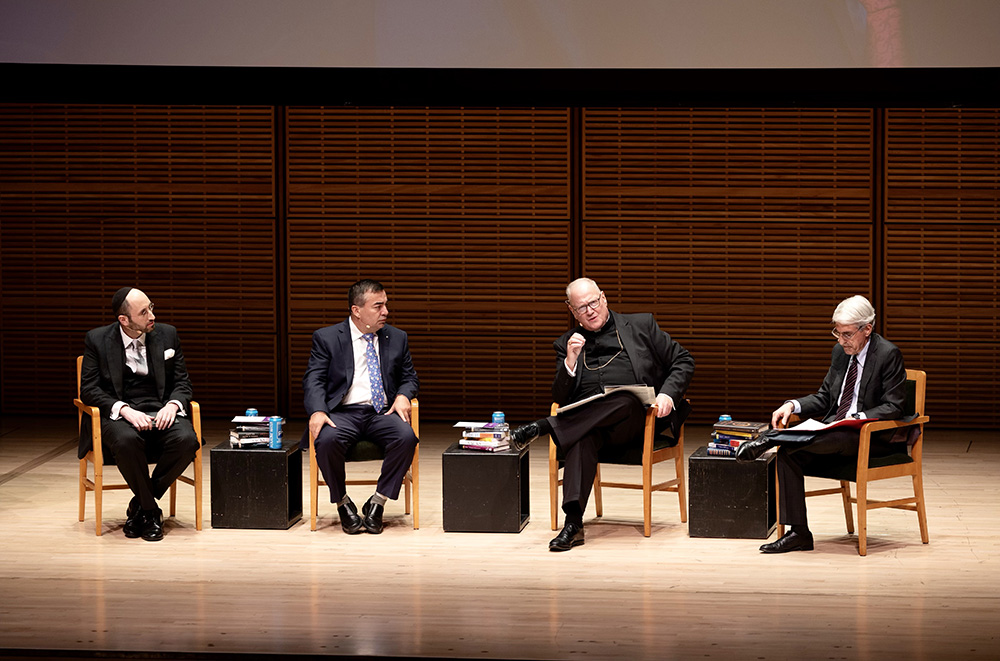
This year, reproach of the attack on Israel by the terrorist group Hamas was woven into every speech and every question answered. The theme of the evening, named after one of the nearly 40 books written by Rabbi Sacks, was “To Heal a Fractured World,” drawing upon the need for dialogue and education to halt rising antisemitism in the world.
The crux of the evening was a panel discussion with representatives from Catholicism, Judaism, and Islam, each offering their perspective on what needs to be done to improve interfaith dialogue.
Among the panelists was Cardinal Timothy Dolan, acting as a representative for the Catholic Church in this conversation. He had met Rabbi Sacks once in New York City and read a number of his works, inspired by his willingness toward repentance in an effort to acknowledge fractures in faith, and therefore be able to heal them.
The archbishop was met with a rapture of applause when he said that to be among the people sitting in Carnegie Hall, he felt “part of the family. Tonight, being with you, I feel one of you. I feel part of you. … I just feel close to you, humanly. Personally, we’re together.”
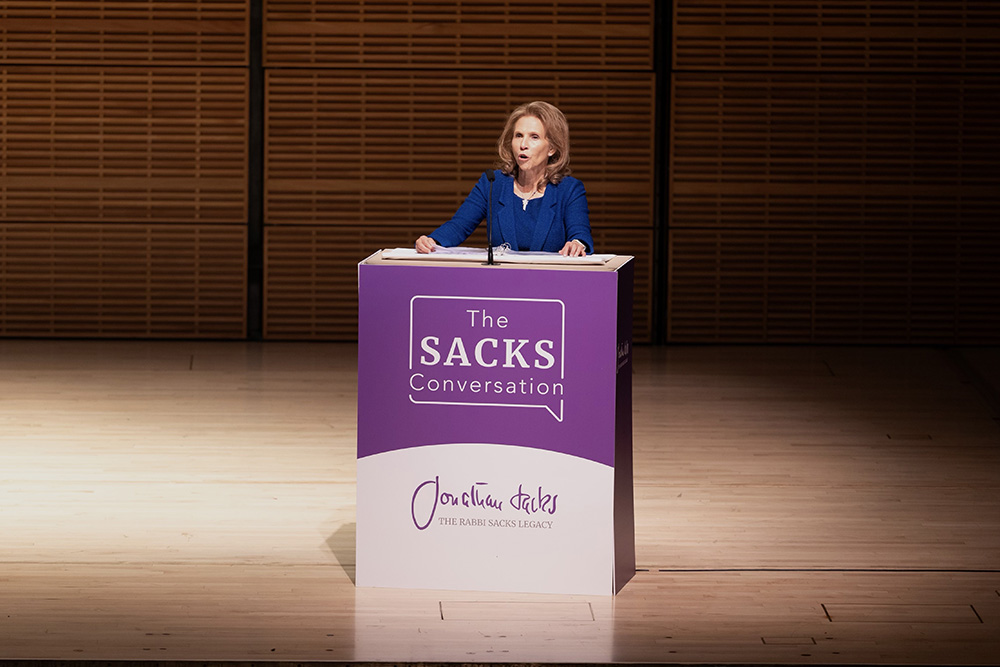
He was joined by Rabbi Meir Soloveichik of the Congregation Sherith Israel in Manhattan and Imam Abdullah Antepli, a scholar from Duke University, for the hour-long panel discussion. Despite coming from different faith backgrounds, all three panelists shared the same sentiment about the growing tension in the Holy Land that is echoing throughout the world: Violence is never the answer.
“For those of us who are Muslim … the least we can do is to condemn in the clearest terms possible this barbaric savagery — without ‘ands’ and ‘buts.’ No value of Islam, no scripture of Islam, could justify this,” Imam Antepli said.
A native of the United Kingdom, Rabbi Sacks came to New York City in 2014 to serve as a visiting professor at New York University and Yeshiva University. Alongside his extensive books, Rabbi Sacks also had a long-standing column, “Credo,” in the New York Times. He served as the Chief Rabbi of the United Hebrew Congregations of the Commonwealth from 1991 to 2013, and was knighted by Queen Elizabeth in 2005.
Among the numerous accolades Rabbi Sacks amassed during this influential life in the public sphere include the Jerusalem Prize and the Templeton Prize, the latter of which is awarded to those that “explore the deepest questions of the universe and humankind’s purpose and place within it,” according to the award’s website.
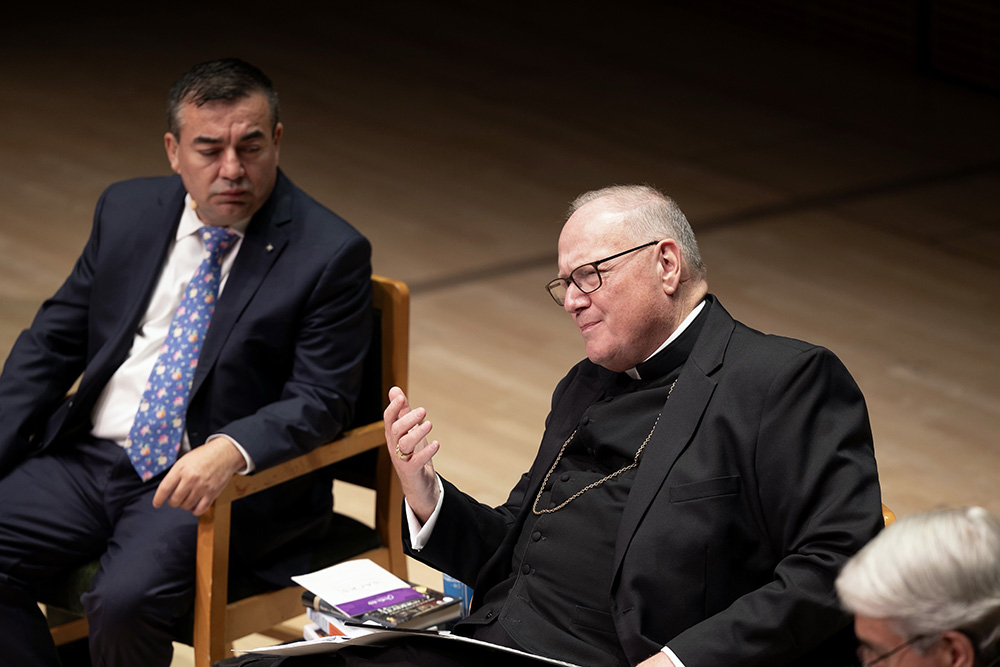
Rabbi Sacks is survived by his wife Elaine, three children — Joshua, Dina, and Gila, an official in the British government — and numerous grandchildren, as well as three brothers.
The influence of Rabbi Sacks is far reaching, with world leaders, including King Charles and Michael Herzog, the Israeli ambassador to the United States, both of whom expressed their appreciation for the religious leader in a video shown at the event. King Charles, who often turned to him for advice, called him a “true and steadfast friend.
“Through his writings, sermons, and broadcasts, Rabbi Sacks touched the lives of countless people with his unfailing wisdom, with his profane sanity and with a moral conviction — which in a confused and confusing world, was all too rare,” the king said.
